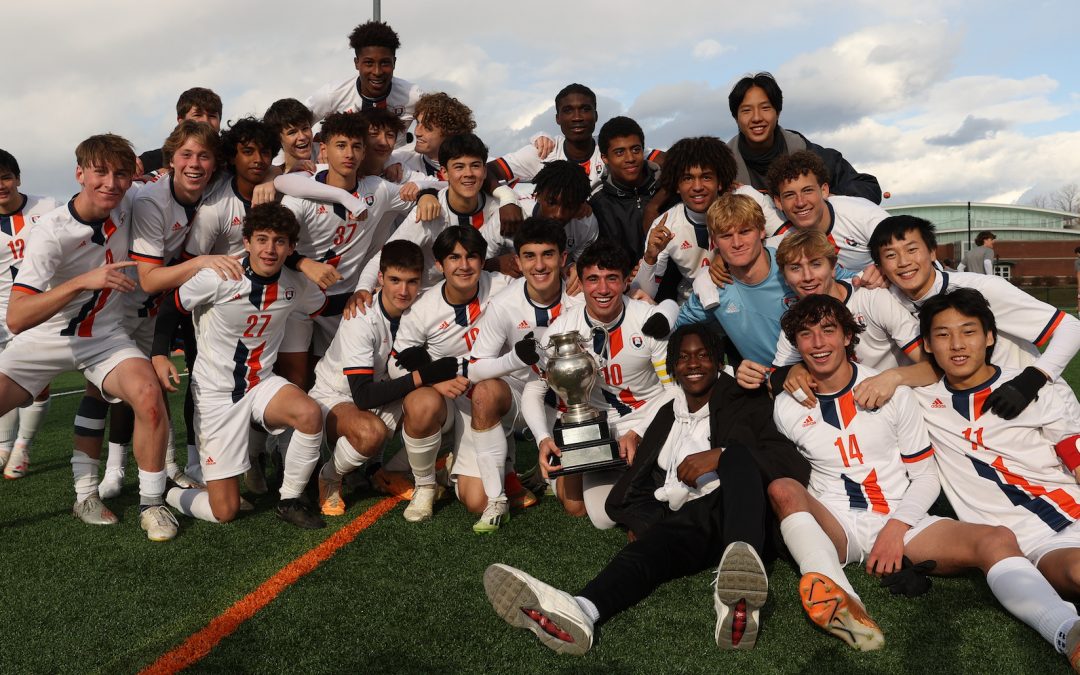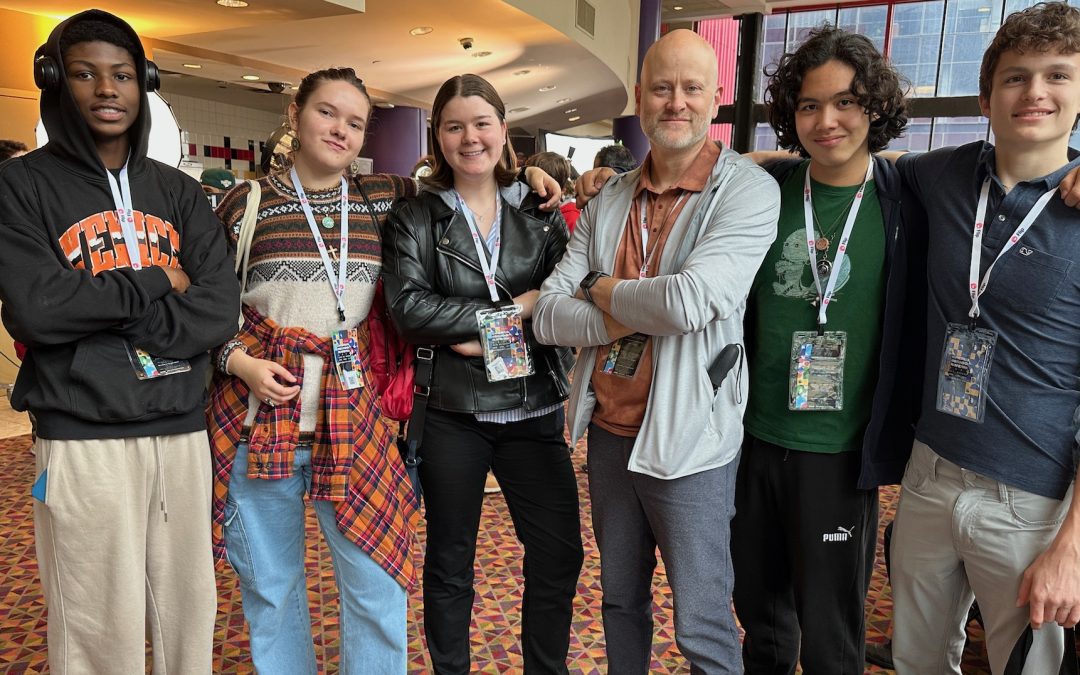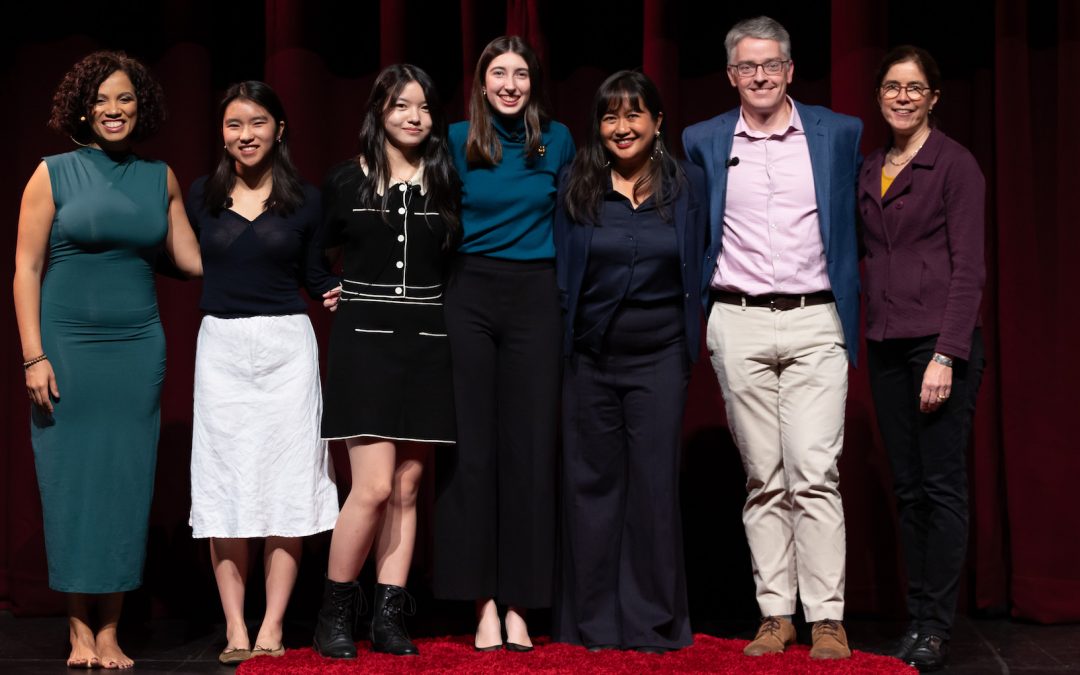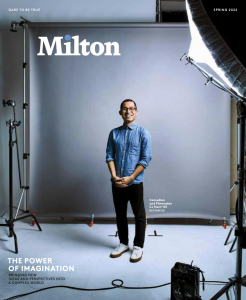
In the News

Boys’ Soccer Wins NEPSAC, Fall Teams Win ISL Championships
The undefeated boys’ soccer team finished its season winning the NEPSAC Class-A finals in a 2–0 victory over Taft. The team, under the leadership of head coach Chris Kane, won the Independent School League (ISL) championship as well.
Also taking home ISL championships in the fall were the volleyball and girls’ cross-country teams.

Robotics Team Off to a Strong Start
Milton’s robotics team held its top rankings through the beginning of the 2023–2024 season. One of the team’s robots—operated by a small group of students—held first place in southern New England and moved up the ranks globally, while other Milton robots consistently ranked at the top of regional tournaments.
Working year-round in their expanded lab on the ground floor of the Art and Media Center, the robotics team is a dedicated, inclusive, and highly skilled group of students who have impressed their coaches and competitors with their incredible abilities and their positive attitudes. Upper School robotics students have mentored Middle School competitors, securing a successful future for the program.

Film Students Enter NYC Festival
Milton film students traveled to New York City for the All-American High School Film Festival, where two students, Yevgeniya Regent ’24 and Luke Witkowski ’24, had films accepted and shown. Regent’s documentary, “Prayer of the Birds” made it to the Best of Fest showing and was nominated for Best International Film and Best Documentary.
Yevgeniya has earned accolades at several festivals for “Prayer of the Birds,” winning Best Picture and the Audience Choice Award at the Williston Northampton Film Festival and Best Film About a Social Issue in the Student World Impact Film Festival. The documentary chronicles the experience of a young Ukrainian refugee—Yevgeniya’s sister—as she adjusts to life in a new country. Witkowski’s film, “Bloodshed,” won Best Editing at the Williston Northampton Film Festival.
The All-American High School Film Festival received approximately 15,000 submissions, “so this was an amazing opportunity for Luke and Yevgeniya, and a great experience for all to be part of the festival,” said Performing Arts Department faculty member Shane Fuller.

Milton Hosts Second TEDx Event
In its second year, TEDxMiltonAcademy took center stage at King Theatre on December 1. The event featured seven student, alumni, and faculty speakers with original talks on topics including traditions, grief, love, and medicine.
This year’s speakers were, L-R, Tanya Everett ‘02, Adrienne Fung ’25, Valerie Gu ’25, Samantha Berk ’24, faculty member Kristine Palmero, Sean Burns ’94, and Julia Shephard Stenzel ’82. The talks were recorded for the TEDx YouTube channel.
Milton Magazine Awarded Gold
 In 2023, Milton Magazine received a Gold award in the Circle of Excellence from the Council for Advancement and Support of Education (CASE).
In 2023, Milton Magazine received a Gold award in the Circle of Excellence from the Council for Advancement and Support of Education (CASE).
CASE judges noted: “With its elegant design and smart writing, this magazine has all the hallmarks of a commercial publication.” It’s the second year in a row that the magazine has been a finalist for the Robert Sibley Magazine of the Year Award.
In 2022, it made history by becoming the first publication from an independent school to receive the Sibley, the highest honor in the field.




